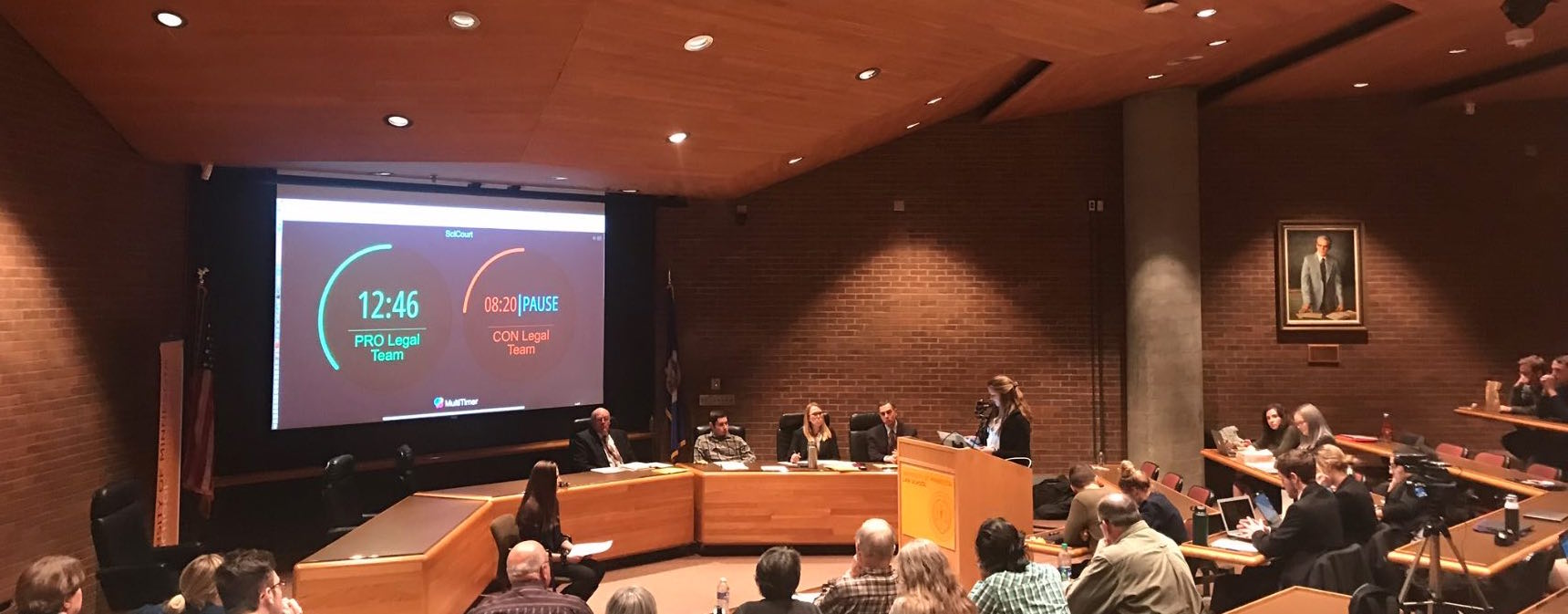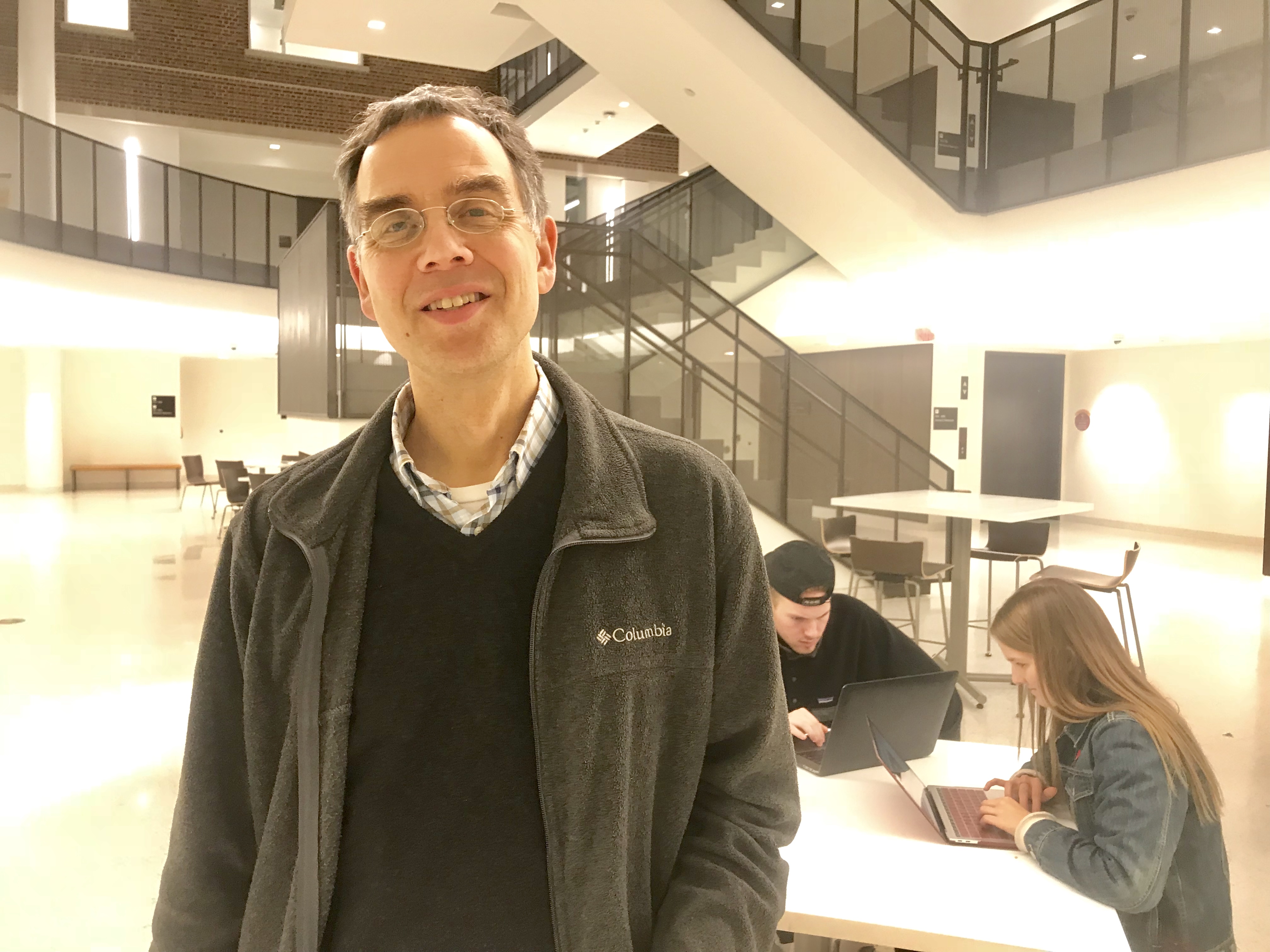
Welcome to Science Court!
Science Court is a project designed to combat polarization in American society and strengthen democracy. It is run as an interdisciplinary course in the University of Minnesota Honors Program involving students from across the university. The students select a controversial issue and spend an entire semester studying it in depth to determine the facts (based on sound scientific research) and then argue it in a mock trial in front of a jury of citizens with a mix of views and backgrounds. The public is engaged through compelling audio, video and online content generated by the students about the preparations, trial and verdict. The trial is free and open to the public.



The 2022 Science Court case is
Grading practices at the University of Minnesota can lead to bias, stress, and disincentivize learning, new innovative student assessment methods should be adopted
This year's Science Court is in partnership with the University of Minnesota (UMN) Student Senate. This topic is inspired by a Student Senate resolution, approved on December 3, 2020, requesting an extension of the UMN policy allowing students to opt for S/N grading (Satisfactory/Not satisfactory) in any course due to the COVID-19 pandemic. The Science Court case generalizes this to a full reevaluation of how students are assessed at UMN. This is timely considering increasing concerns regarding student mental health, the increased emphasis on student diversity and equity, changes in how students learn due to the technological environment, the increase in scholastic dishonesty facilitated by the internet and social media, and the rise of remote learning.
Science Court will consider student assessment holistically exploring what is known from scientific research in domains of knowledge informing this topic and propose two main strategies, Refine versus Reform, for the Student Senate to consider.
- The "Reform" (pro) approach proposes to replace the current UMN system with alternative methods for grading and student assessment proposed in the literature and tested at other institutions.
- The “Refine” (con) approach will argue to largely retain the current UMN grading system with modifications aimed at addressing its limitations based on research findings.
Stay tuned or follow us on twitter or join the Science Court mailing list to be kept informed.
LATEST BLOG POSTS
OUR CASE WAS ON THE MINNEAPOLIS MIDTERM BALLOT!

So, this is pretty cool: the topic we selected to debate for our SciCourt class case was actually on the midterm ballot in Minneapolis! On November 6th, Minneapolis voters were asked to decide if a school district should get more money to pay for more technology for students in public schools. As it turns out, 72% of Minneapolitians were willing to pay slightly higher taxes in order to put more technology in classrooms. But is this a good thing?
Here is what Luke Diamond (pictured on the right), our intrepid podcaster, had to say:
“If you think that Science Court is just putting around issues that don't really affect the public…that don't really affect you...you might reconsider. Because this year [if you live in Minneapolis], you will be paying the government a couple hundred bucks to put tech in classrooms."
Hear more in Episode 8 of the SciCourt Podcast as Luke looks at this issue and how we will be discussing this is SciCourt:
Meet the People Behind SciCourt!
Want to know more about the people behind SciCourt! Read on to hear directly from the instructors about why they are involved, what they do, and what they hope SciCourt will accomplish.
Or if you would rather listen, take a look at Luke Diamond's recent podcast to hear more from the Lauren Clatch (Science Team Advisor) and Collin Tierney (Legal Team Advisor)!

Q: Why did you create SciCourt?
What is 1:1 Tech?
Watch this video, by Porter Larkin, to learn more about what 1:1 Tech really means!